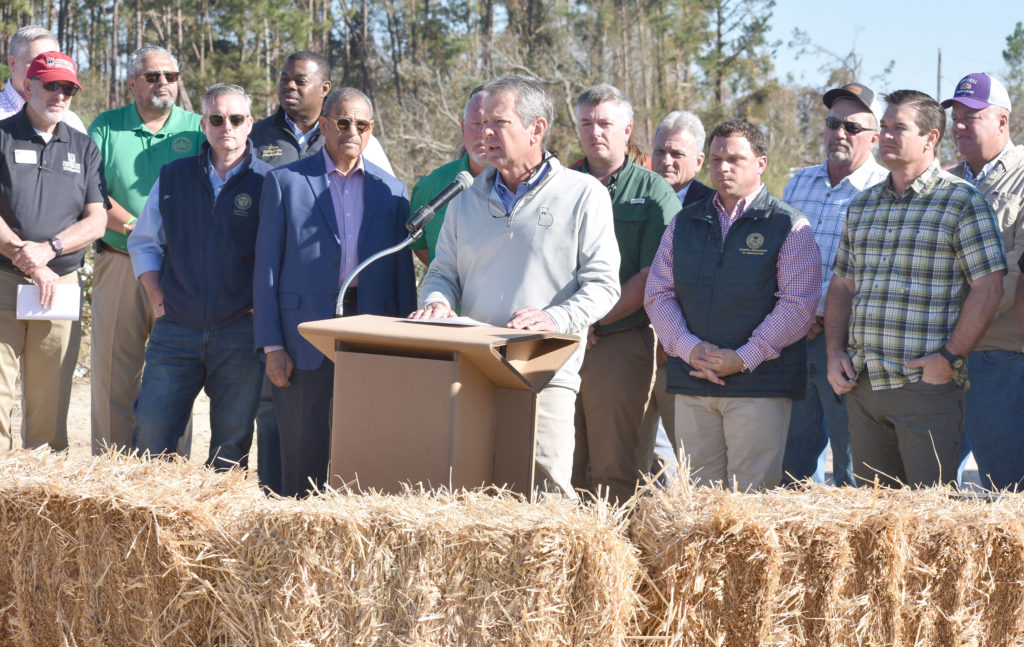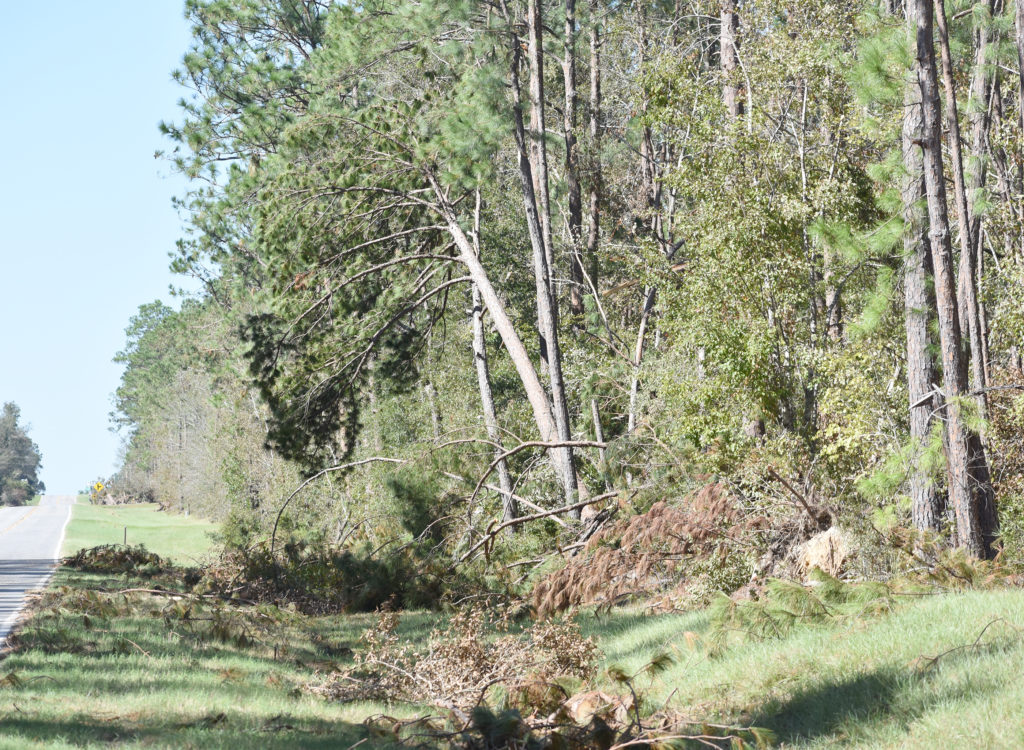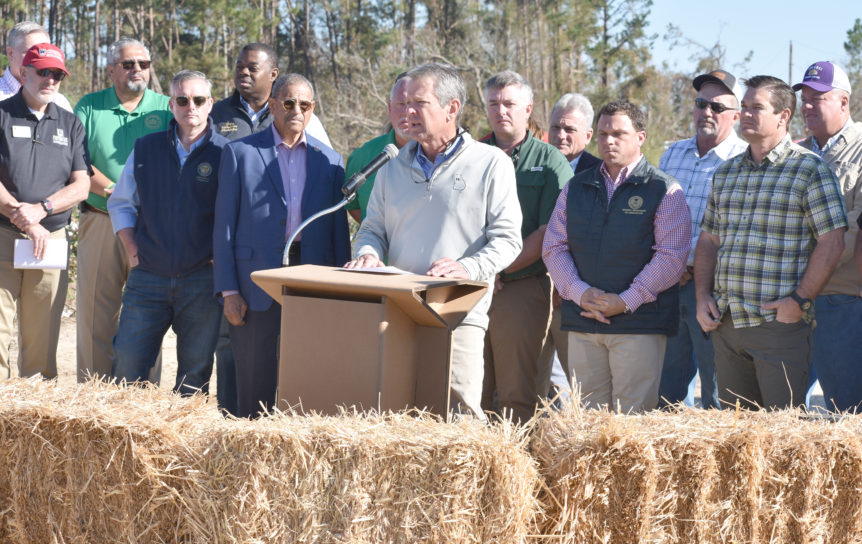
By Clint Thompson
Hurricane Helene’s financial impact on Georgia farmers is staggering. The storm’s effect on the producers’ psyches is just as devastating.
At a time when specialty crop growers are still assessing damages and calculating losses following the storm’s trek through Georgia on Sept. 26 and 27, producers are called to keep tabs on the mental well being of their fellow farmers.
It was a point of contention when Georgia Gov. Brian Kemp addressed farmers and legislators during a press conference in Soperton on Oct. 10.

“Ya’ll need to be talking to people about their mental health. You need to remind people to look out for your neighbor. We’re all strong, tough people. But there’s sometimes even we need a hug, need a pat on the back or just need a little bit of rest,” Kemp said.
“I would just ask you to keep that in mind and know, myself, the first lady, the people standing behind us, we are going to continue to work. This isn’t a one-week problem. It’s not a one-month problem. It’s probably not a one-year problem. We’ve seen generational losses on the farm. We’re going to continue to work to really help come back from that in rural Georgia.”
Financial Impact
University of Georgia College of Agricultural Environmental Sciences Dean Dean Nick Place announced initial estimates from the storm is a $6.46 billion economic impact, which includes direct and indirect losses, loss of jobs, etc. Georgia’s specialty crops in the hurricane affected areas were especially impacted.
Georgia’s crop losses were “catastrophic,” according to Georgia Ag Commissioner Tyler Harper.
“It truly is difficult to put into words the impact that this hurricane has had on our state’s No. 1 industry and the farmers that fuel the industry’s success every single day,” Harper said. “It is catastrophic, widespread damage that has impacted every small town and every rural community in the hurricane’s path.”
The devastation comes on the heels of already low commodity prices and high input costs that producers have been suffering through following COVID. That raised the concern level for Georgia growers, who not only had to deal with Helene’s wrath but also deal with the potential threat of three hurricanes in a month.
Russ Goodman, a Georgia blueberry grower and state representative, was in attendance for the press conference in Soperton, Georgia, where the initial assessments were released. He discussed how looking out for fellow farmers should be a top priority for all farmers.
“Farmers were struggling to begin with, with input costs and commodity prices. I’ve got a 1983 4450 that was about $36,000 when it was new. That same horsepower tractor today is about $200,000. Cotton in 1983, I think the average closing price was 75 cents, and it’s less than 75 cents today. We were struggling to begin with and then we had this storm come through,” Goodman said.
“We will get through it. I’ve tried my best and it’s a struggle for me mentally, to be honest with you. I’ve tried to lift up my fellow farmers the best that I can, but I do believe God, he made all of farmers stewards of the land and he entrusted us with that. We’re going to get through this.”










